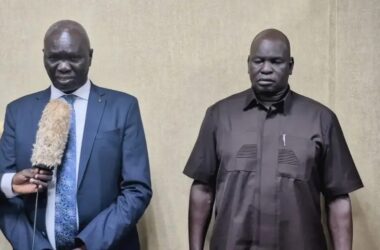By Yiep Joseph
Civil society activists are calling on the government to prioritize the creation of political and civic space as the government tenure is extended for another two years.
Speaking during an extraordinary session of the Reconstituted Joint Monitoring and Evaluation Commission (R-JMEC) on Wednesday, Taban Christopher, a civil society member, urged the government to enhance freedom of speech and allow greater civic engagement.
“This time if we are to move forward as we are moving, we demand and we request civic and political space to be a priority for us,” Taban said
He expressed that the continuous arrest of those who speak the truth undermines the peace process.
The activist reiterated that for the government to implement the pending task, there is a need to have political will and let everyone enjoy their rights.
Taban called on the government to revoke the National Security Bills that give National Security the right to arrest without a warrant.
“We were crying; we were yarning on the issue of National Security Act articles 54 and 55; we were betrayed by you. At any time, Taban can be arrested at any time, and at will, we need those chapters to be revoked,” he said.
The activists blamed the government for failing to respect freedom of space as they planned to use the National Security Bill to silence South Sudanese.
On his part, Akouch Ajang, Chairperson of the South Sudan Civil Alliance, called on the government to ensure that citizens are given the right to speak and contribute to nation-building.
He mentioned that the extended two years have witnessed serious changes in regard to freedom of speech and political space.
Ajang promised that civil society would remain committed to playing its role regardless of several challenges.
In July, lawmakers passed the hotly debated National Security Act 2014 Amendment Bill 2024, which gives the security agency the right to arrest suspected criminals without a warrant.
The lawmakers maintained the two controversial sections 54 and 55 of the bills, which give the agency broad and unqualified powers.
The bill was passed by vote after the parliamentarians failed to reach a consensus, with some urging the scrapping of the two sections as demanded by a section of the civil society.
The bill later became law by default after spending 30 days in the office of the President.



